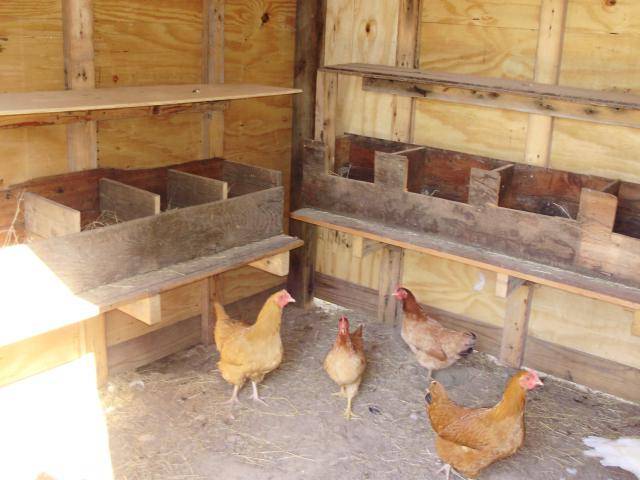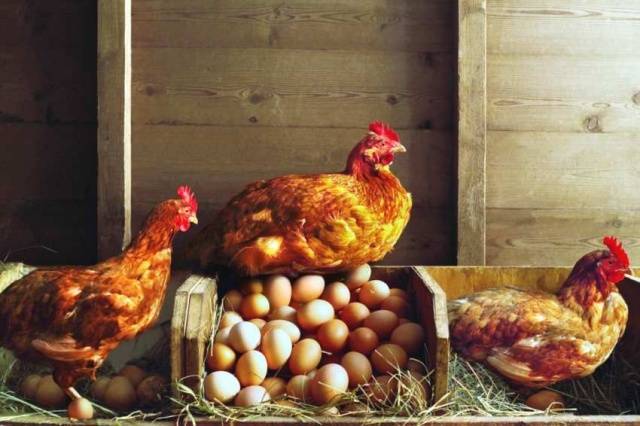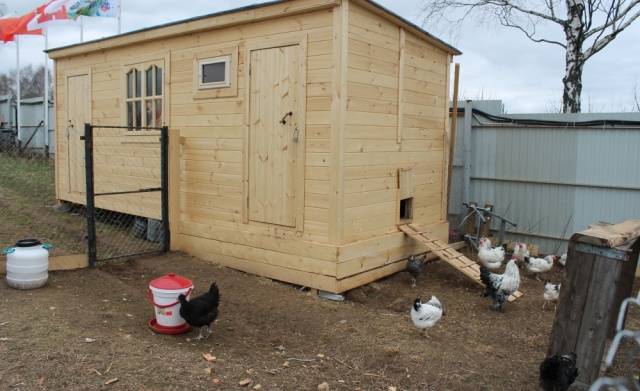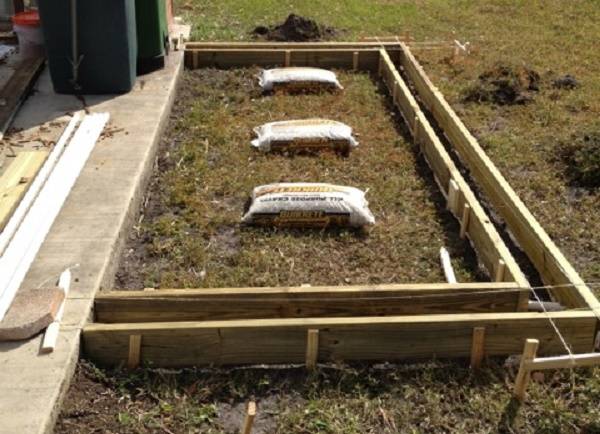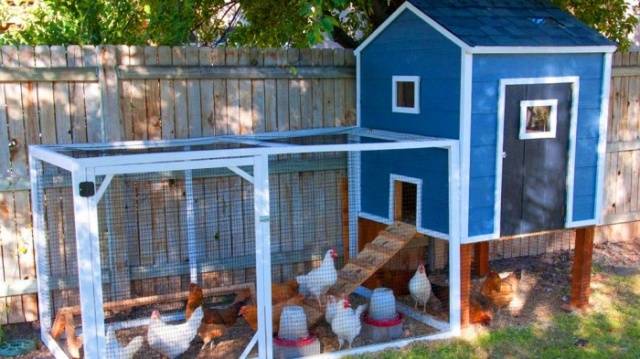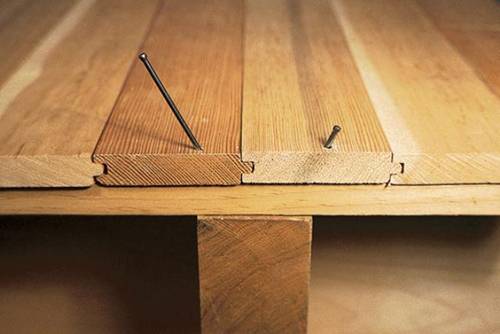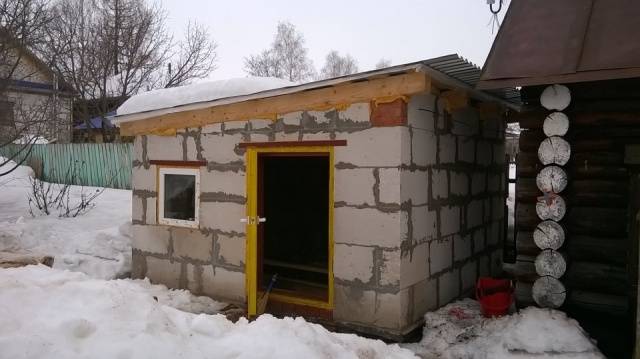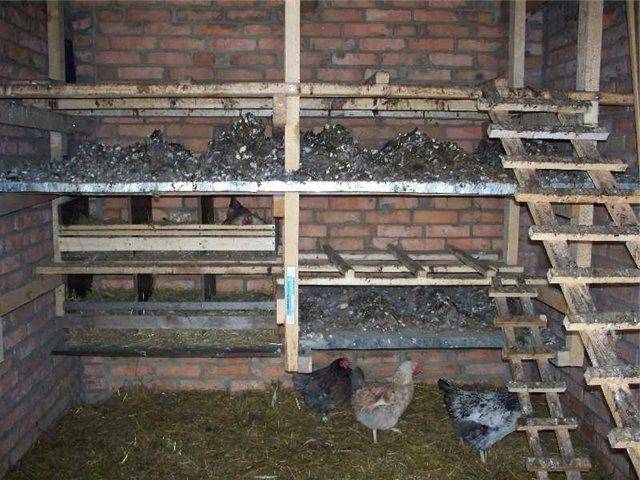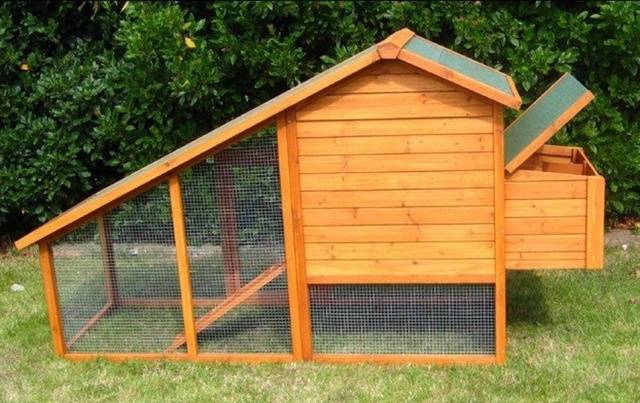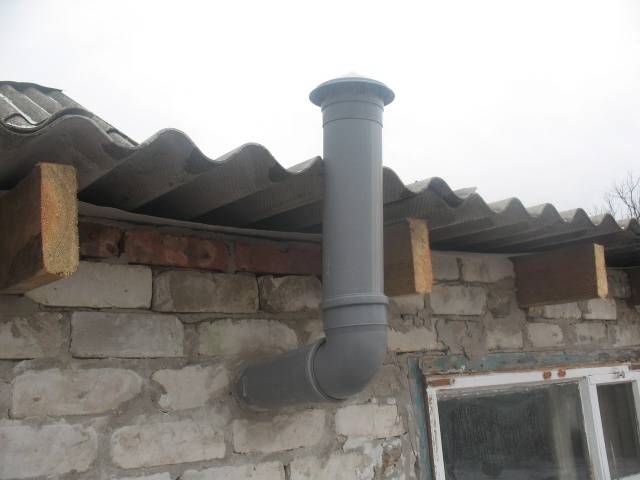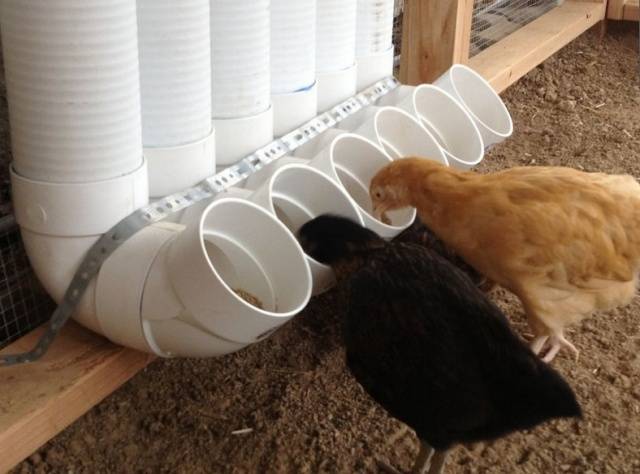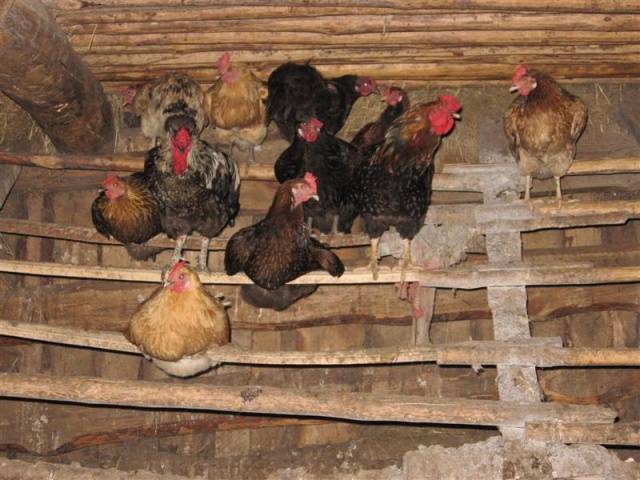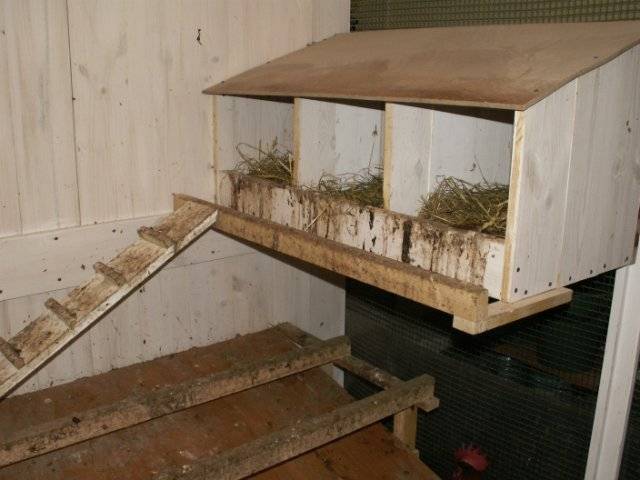Content
Many owners of private houses are thinking about the peculiarities of running a backyard economy. In addition to growing vegetables and fruits, some also start breeding poultry. To equip a chicken coop, which will be suitable for living both in winter and in summer, you need to know some of the nuances that will help you build a correct and high-quality chicken coop for 15 chickens. It is this number of birds that will fully provide a family of 4-5 people with fresh domestic eggs.
Features of a winter chicken coop for 15 chickens
The size of the hen house, which is supposed to house 15 chickens, does not require too much space. You can make such a structure with your own hands. To do this, the main thing is to make the correct drawings and think over all the features of the building in advance.
The main function of the chicken coop is to protect the bird from bad weather and external influences, as well as to ensure the safety of eggs from predators or pets. If you plan to use it all year round, then you should think about arranging a poultry house that can provide comfortable conditions in cold weather. This means that you will have to insulate the walls or think over the heating system. An important parameter for a chicken coop is proper lighting, which means that the installation of windows and lighting equipment cannot be avoided.
The size of the room is chosen taking into account the number of birds that can comfortably accommodate in the territory - the number of chickens per square meter should not exceed three heads.
Do not forget about the prudently equipped walking area near the chicken coop. If in summer it can be an open fenced space, then in winter it is a place inside the chicken coop should be enough for the chickens.
A finished version of a chicken coop for 15 chickens is shown in the video:
Choosing a place for construction
Before you build a chicken coop, you should very carefully choose a place for future construction. You should choose a flat area with good sunlight.
The best placement is on a slightly sloped surface to help prevent water from accumulating in the soil by allowing it to run off.
It is important that the chickens walk on the street on the south side, and the size of the site is calculated taking into account that an area of 1 square meter is needed for one layer.
It is also important to prudently choose a place so that it is not in a draft, which the hens do not tolerate well. Egg production can also be affected by too high noise levels, so you should equip the chicken coop in the back of the yard.
An important stage of construction is the arrangement of the foundation
A winter chicken coop assumes the obligatory arrangement of a solid and reliable foundation. For a chicken coop, there are two ways to arrange a foundation:
- Slab-type concrete foundation;
- The foundation is of a columnar type.
Platen
Marking is done with stakes and a cord. A layer of soil is removed from the surface to a depth of about 35 cm. A layer of crushed stone and sand about 10-15 cm thick is filled in, which is rammed. Formwork is made from the boards around the perimeter. A reinforcing mesh is laid on top of the sand and gravel cushion. From above, the structure is poured with concrete (grade M200). After two weeks of drying, you can start installing the walls of the chicken coop.
Columnar
This design is somewhat simpler to manufacture. Around the perimeter of the future building, holes are drilled with a depth of 0.8 m to 1 m, the diameter of which is 15 cm. Formwork is installed in these holes, the function of which is performed by roofing material twisted into a pipe. Before pouring concrete, metal rods up to 14 mm in diameter are inserted into the formwork, 3-4 pieces for each post.
This means that the number of posts will be 6-9 pieces.
One of the reinforcing rods must have a thread for subsequent attachment to a wooden beam on which the floor will be mounted.
Arrangement of the floor of the chicken coop
The hen house, which is supposed to be used in winter, should be equipped with such a floor that will provide the bird with comfort, even at low temperatures. If the foundation is of a columnar type, then the floor should be made two-layer - log boards are attached to the support frame attached around the perimeter and the outer part is sheathed with wooden boards. Insulation is laid on the logs, and the top is sheathed with a grooved board treated with an antiseptic.
To arrange the floor with a slab foundation, it is enough to lay wooden logs, and put insulation on them, and sheathe it with a board on top.
If you decide not to insulate the floor, then you should sparingly lay straw on the floor, the layer thickness of which should be about 20 cm. This will provide the necessary level of heat in winter.
Building walls
In order for the built chicken coop to be strong, durable and stable, you should choose the right material for arranging the walls of the structure. They should be windproof and also help keep warm in winter. Among the common materials that are used to build a chicken house are popular:
- Foam blocks;
- Brick;
- Wood.
Walls made of foam block are the best option in terms of ease of installation and preservation of heat by the material. But its cost is not the lowest. Such material will have to be sheathed inside with insulation.
A brick house for a bird is also durable and strong and will last for more than a dozen years with proper installation and high-quality material, but its construction can cause difficulties, and the choice of insulation or finishing material inside the chicken coop will also be an important point.
A wooden chicken coop is the most popular type of material for building a bird house. Its thermal conductivity and strength provide a comfortable microclimate for chickens in winter, while environmental friendliness and ventilation promote the circulation of fresh air in an enclosed space. It is an economical and practical material that, if properly pretreated, can make an excellent chicken coop. However, it should be borne in mind that you still have to use insulation.
Roof
Any chicken coop, be it a seasonal building, or a full-fledged house for chickens, must have a high-quality roof, and its size should correspond to the dimensions of the building. The features of the roof, which is installed on chicken coops, include:
- It is preferable to choose a gable structure, which in winter will ensure quick and safe snow convergence;
- It is best to use roofing material, slate or shingles as a coating material;
- A prerequisite is high-quality insulation - using chipboard or mineral wool.
However, a gable roof is both a small attic and a better thermal insulation system.
An important stage of construction is high-quality insulation of both walls and ceilings. This is what ensures the durability of the structure, and also contributes to the comfortable state of the chickens.
In addition to insulation, high-quality ventilation should also be provided, which will promote the circulation of air masses. Usually, ventilation units are used only in the warm season, so that the chickens do not blow in the cold. In winter, airing is performed simply by opening the front door for a while.
The hood is mounted as far as possible from the perches and is made using a pipe with a diameter of 20 cm.The total length of the pipe should be about two meters, it goes down 50-70 cm inside, and the rest remains on the roof surface. A pipe of this size will provide a high-quality and efficient ventilation in the chicken coop about 10 square meters.
Inner space
Along with the construction parameters, the interior arrangement of the room is also important, as well as the presence of appropriate zones in it for the different needs of the chickens.
In order for the hens to be able to eat and drink freely, the location of the feeders and drinkers should be provided at the required level. Usually they are located opposite the perches, on the opposite wall from them. The number and size of feeders and drinkers depends on the number of chickens. For comfortable eating and drinking, approximately 15 cm of feeders and drinkers should be allocated for each chicken.
In order for the birds to rest comfortably, which directly affects the number of eggs they hatch, high-quality perches should be equipped inside. For their installation, you will need a wooden block with a cross section of 40 * 40 cm or slightly thicker. The top edges are slightly rounded. For installation, an impassable place in the room is selected and the perches are fixed. The distance between the bars should not exceed 25-30 cm.
The length of the beams should be calculated based on the number of birds - for each chicken, 30 cm in length. Trays should be placed directly under the perch for the birds to relieve themselves.
In order for chickens to carry eggs comfortably, they should equip high-quality nests. For 15 chickens, approximately 4-5 nests will be needed. Their design can be either open or closed. When building a winter chicken coop, it is better to choose closed nests. For them, you can use ready-made wooden boxes, the height of which is 40 cm.The width and depth should be about 30 cm. Straw is laid at the bottom of the nest.
A chicken coop for 15 chickens, which is planned to be used in winter, should be durable and warm, as well as spacious so that the chickens feel comfortable in it. This will help the birds to lay, providing the owner with the required amount of eggs.
